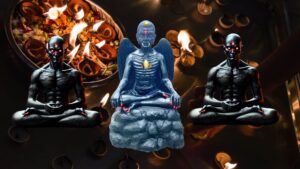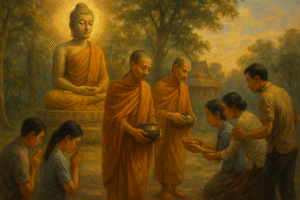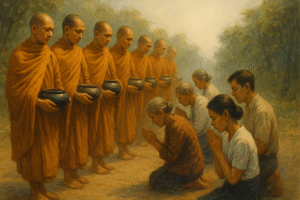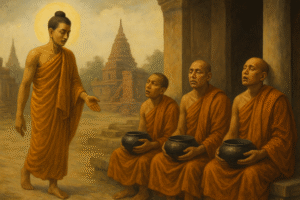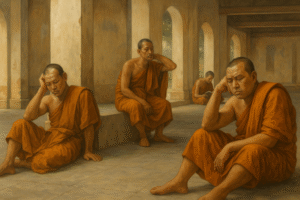In the relentless pace of modern life, the state of constant busyness has become a typical phenomenon. Society often measures success by the amount of work done, leading to the glorification of busyness. It’s a trap, a treadmill of busyness for the sake of busyness, where the illusion of productivity may deceive us into thinking we are growing. However, there’s a profound wisdom in the paradoxical phrase “Doing nothing is better than being busy doing nothing.” Let’s explore this concept as it relates to spiritual growth, spiritual energies, and awakening.
For most of us, the busyness of life is equated with productivity, success, or significance. Our calendars brim with appointments, our inboxes are crammed with unread emails, and our minds are perpetually juggling numerous tasks. However, is being perpetually busy genuinely leading to personal or spiritual growth?
In our quest to achieve, we might overlook the vital fact that being constantly busy doesn’t necessarily equate to meaningful progress. The adage “busy doing nothing” points towards action that isn’t guided by purpose, merely spinning our wheels in the mire of our busyness. Such activity, despite its outward appearance of dynamism, does not contribute to spiritual progress or awakening.
The Power of Stillness:
Now, let’s explore the seemingly paradoxical notion of “doing nothing.” In a world that often prioritizes action over contemplation, it might seem counterproductive or even daunting to consider doing nothing as a viable, constructive choice. Yet, spiritual traditions worldwide highlight the immense power inherent in stillness and introspection.
Doing nothing isn’t about being lazy or inactive. Rather, it’s about purposefully choosing to step back from the continual churn of thoughts, responsibilities, and tasks to create space for peace, introspection, and spiritual cultivation. It’s a sacred pause, a moment to breathe and to be.
This practice is a powerful way to connect with our spiritual energies and induce spiritual awakening. In this space of non-action, we quiet the mind and become more attuned to our inner self, leading to heightened self-awareness and a deeper understanding of our life purpose.
The Spiritual Energy in Non-Doing:
According to Taoist philosophy, the concept of “Wu Wei” or “non-doing” emphasizes effortless action that is in harmony with the flow of life. This approach is not about idleness but rather about aligning our actions with the natural rhythms of the universe. By doing so, we open ourselves to the universal energy, guiding our spiritual growth and awakening.
In stillness, we create room for our spiritual energy to surge and flow unimpeded, fostering a deeper connection with our higher self and the universe. It’s in this silence we begin to hear the whispers of our soul, urging us towards a path of growth and transformation.
Spiritual Awakening Through Non-Doing:
In the quest for spiritual awakening, stillness serves as an essential catalyst. The wisdom in embracing stillness is that it becomes a wellspring for creativity and a haven where solutions to problems can emerge. When we halt the constant activity and dive into the depth of our being, we discover a wellspring of wisdom.
Doing nothing can allow us to let go of the ego-driven needs for control, recognition, and perpetual achievement. It teaches us acceptance and surrender, essential qualities for spiritual awakening. When we cease striving and start embracing, we align ourselves with the universe, leading to profound transformations.
It’s time to challenge our conventional definitions of productivity and success and give value to the power of non-action or doing nothing. It is not a call to abandon our responsibilities or stop working towards our goals, but a gentle reminder to occasionally step back, slow down, and reconnect with our inner selves. It’s an invitation to relinquish the busyness that leads nowhere and to create space for introspection and spiritual growth. Ultimately, it’s through this delicate balance of doing and non-doing that we can truly grow, awaken, and align with our life’s purpose.

